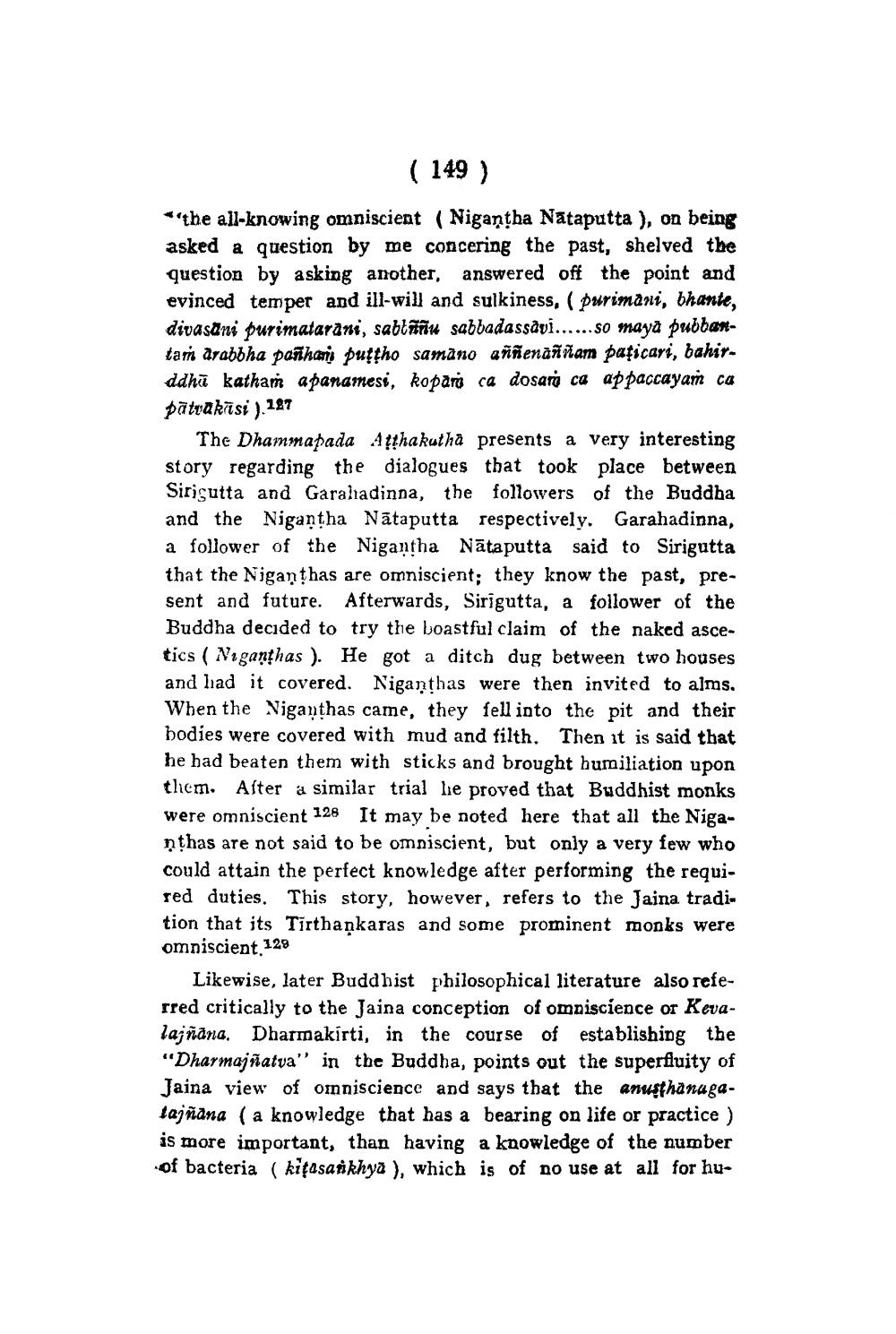________________
( 149 )
*'the all-knowing omniscient (Nigantha Nataputta ), on being asked a question by me concering the past, shelved the question by asking another, answered off the point and evinced temper and ill-will and sulkiness, ( purimani, bhante, divasäni purimatarani, sablariu sabbadassavi......so maya pubban. tam arabbha panhan puttho samano aññenaniam paficari, bahir. ddhū katham apanamesi, kopari ca dosari ca appaccayam ca pātvakasi ).127
The Dhammapada Atthakutha presents a very interesting story regarding the dialogues that took place between Sirigutta and Garaladinna, the followers of the Buddha and the Nigantha Nātaputta respectively. Garahadinna, a follower of the Nigantha Nātaputta said to Sirigutta that the Niganthas are omniscient; they know the past, present and future. Afterwards, Sirigutta, a follower of the Buddha decided to try the boastful claim of the naked ascetics ( Niganthas). He got a ditch dug between two houses and liad it covered. Niganthas were then invited to alms. When the Niganthas came, they fell into the pit and their bodies were covered with mud and filth. Then it is said that he had beaten them with sticks and brought humiliation upon them. After a similar trial lie proved that Buddhist monks were omniscient 126 It may be noted here that all the Nigaņthas are not said to be omniscient, but only a very few who could attain the perfect knowledge after performing the required duties. This story, however, refers to the Jaina tradition that its Tīrthaņkaras and some prominent monks were omniscient. 129
Likewise, later Buddhist philosophical literature also referred critically to the Jaina conception of omniscience or Kevalajñāng. Dharmakirti, in the course of establishing the “Dharmajñatva" in the Buddha, points out the superfluity of Jaina view of omniscience and says that the anusthanagalajñana ( a knowledge that has a bearing on life or practice ) is more important, than having a knowledge of the number of bacteria (kitasankhya ), which is of no use at all for hu




